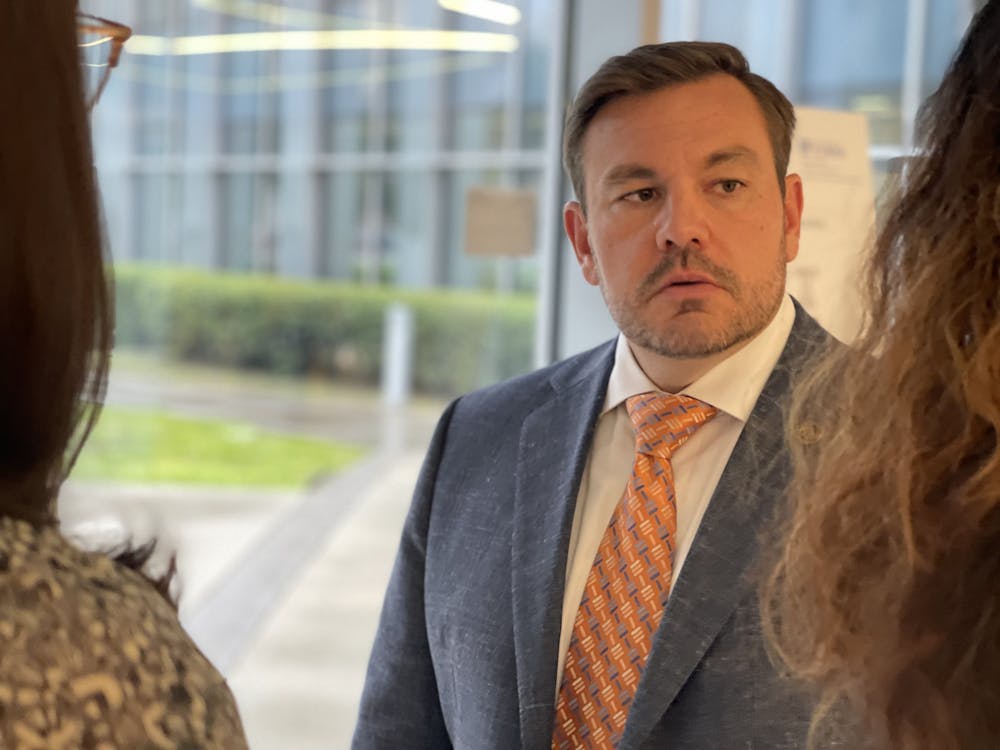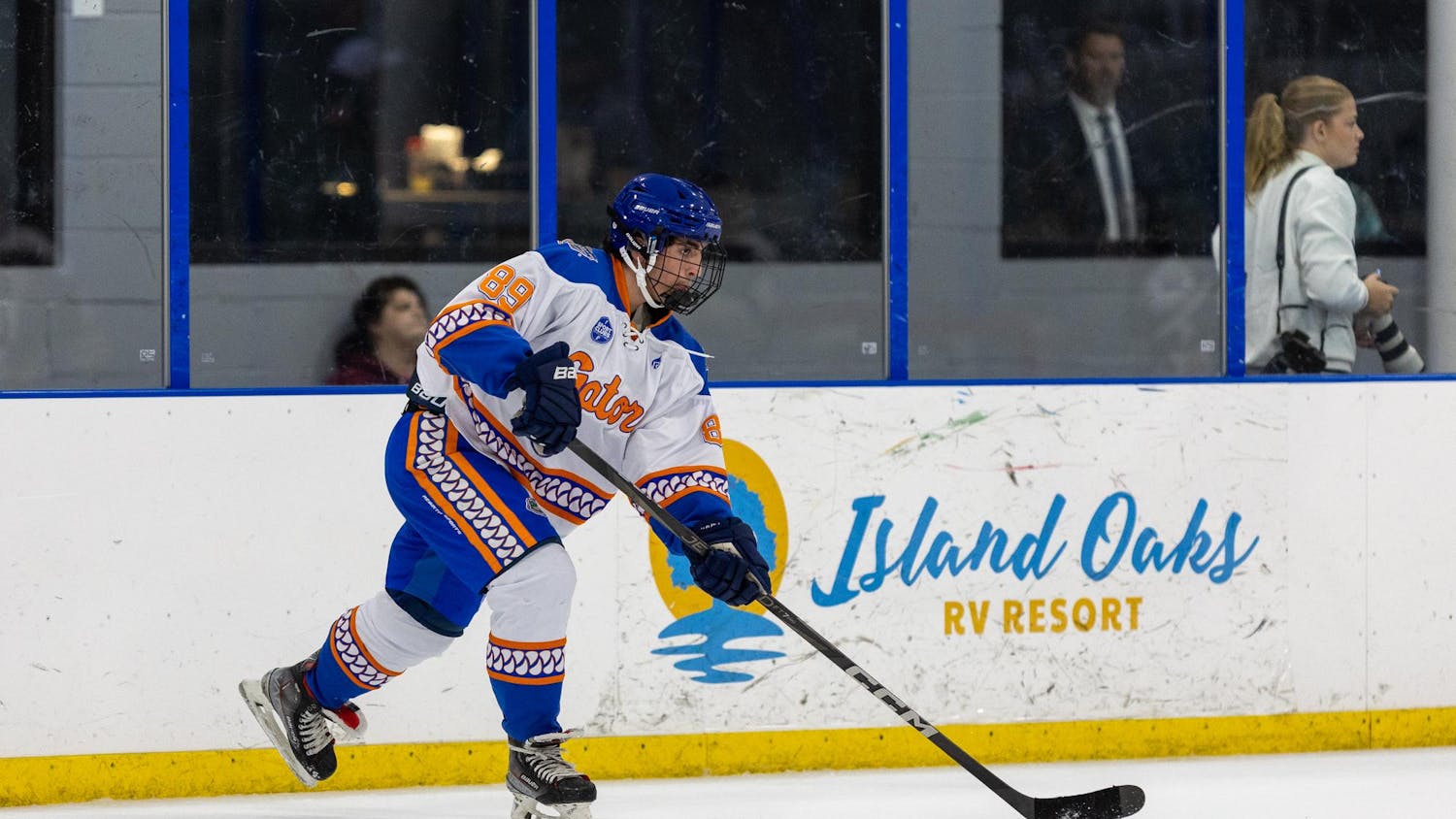After losing his son to a rare genetic disease, state Rep. Adam Anderson vowed to make it easier for other families to find answers.
That promise became reality with the passage of House Bill 907, the Sunshine Genetics Act, which paves the way for a pilot program to help families identify serious conditions at birth through gene sequencing — at no cost. Gov. Ron DeSantis signed the bill into law in July.
The bill also establishes the Florida Institute for Pediatric Rare Diseases, a research center and clinic dedicated to children’s diseases at Florida State University, and the Sunshine Genetics Consortium, a collaborative effort among Florida universities, including UF, to expand research and improve access to genetic testing.
Anderson appeared at a press conference Friday in Malachowsky Hall, standing alongside a group of doctors and affected families, including UF Health President Dr. Stephen Motew.
“So many of these families who have a child in this diagnostic odyssey are traveling around the country seeking answers,” Anderson said after the conference. “All they want to know is, ‘What’s wrong with my baby?’ And unfortunately, so many of them end up passing away before they receive any treatment at all.”
Anderson entered politics after his son, Andrew, died from Tay-Sachs disease at age 4.
The Sunshine Genetics Act was the first bill that Anderson “personally wrote from scratch.”
“The bill started as literally bullet points on a legal pad. Some of them were literally on a napkin,” Anderson said to the Alligator. “It took a while to get that into a legal format — something that’s actionable, something that really could become law.”
Joe Dion, a father to two children with limb girdle muscular dystrophy, also spoke at the event. He described his children’s condition as a muscle-wasting disease that eventually “robs your ability to walk.” Initially, his family struggled to find treatment options for the disease. Dion travelled to the press conference from Massachusetts.
"Finding the news that they have a genetic disease, a rare disease that’s incurable, zero treatments at the time, was horrible,” Dion said to The Alligator. “We could have sat there and been depressed and felt bad about ourselves, which we did at the beginning … Then, we decided to get to work.”
Eventually, the family began working with Dr. Barry Byrne, director of UF’s Powell Gene Therapy Center, and a French company called Atamyo. They traveled across the country, and the world, looking for a hospital that would treat such a difficult case, he said.
Dion said gene therapy and genetic medicine has changed the “trajectory” of his children’s lives. Currently, his daughter is a cheerleader, and his son is a junior lobster fisherman.
Also in attendance were Kelly Brazzo and her daughter, Sammy, who came from Pennsylvania at the invitation of Byrne. Sammy also has limb girdle muscular dystrophy. She was diagnosed at age 2 and is now 17.
“People ask us all the time, ‘How did you get her diagnosed so early?’” Kelly said. “Really, I mean, we both have a bit of a medical background.”
Kelly worked as a speech therapist and her husband as a podiatrist before starting a nonprofit called CureLGMD2i Foundation after their daughter’s diagnosis.
Sammy, who is still figuring out what she wants to do in the future, said her diagnosis explained a lot.
“I didn’t really understand it, but I was kind of happy that it was all … just finally making sense to me,” Sammy said.
Sammy has recently become more involved in her parents’ organization, and she gave testimony about her condition at the family’s church.
Sammy also recently completed her first advocacy event and shared her story with legislators in Pennsylvania.
Byrne, who is trained in the field of genetics and pediatric cardiology, said the involvement of the family in the treatment process is “critical.”
“We have to know what's meaningful to the family that would represent an effective treatment,” Byrne said to the Alligator.
The press conference concluded with a tour of the Intelligent Clinical Care Center in Malachowsky, UF Health Shands Hospital and Clinical and Translational Research Building.
Julianna Bendeck is a contributing writer for The Alligator. Contact her at jbendeck@ufl.edu
Julianna Bendeck is a contributing writer for The Alligator.






